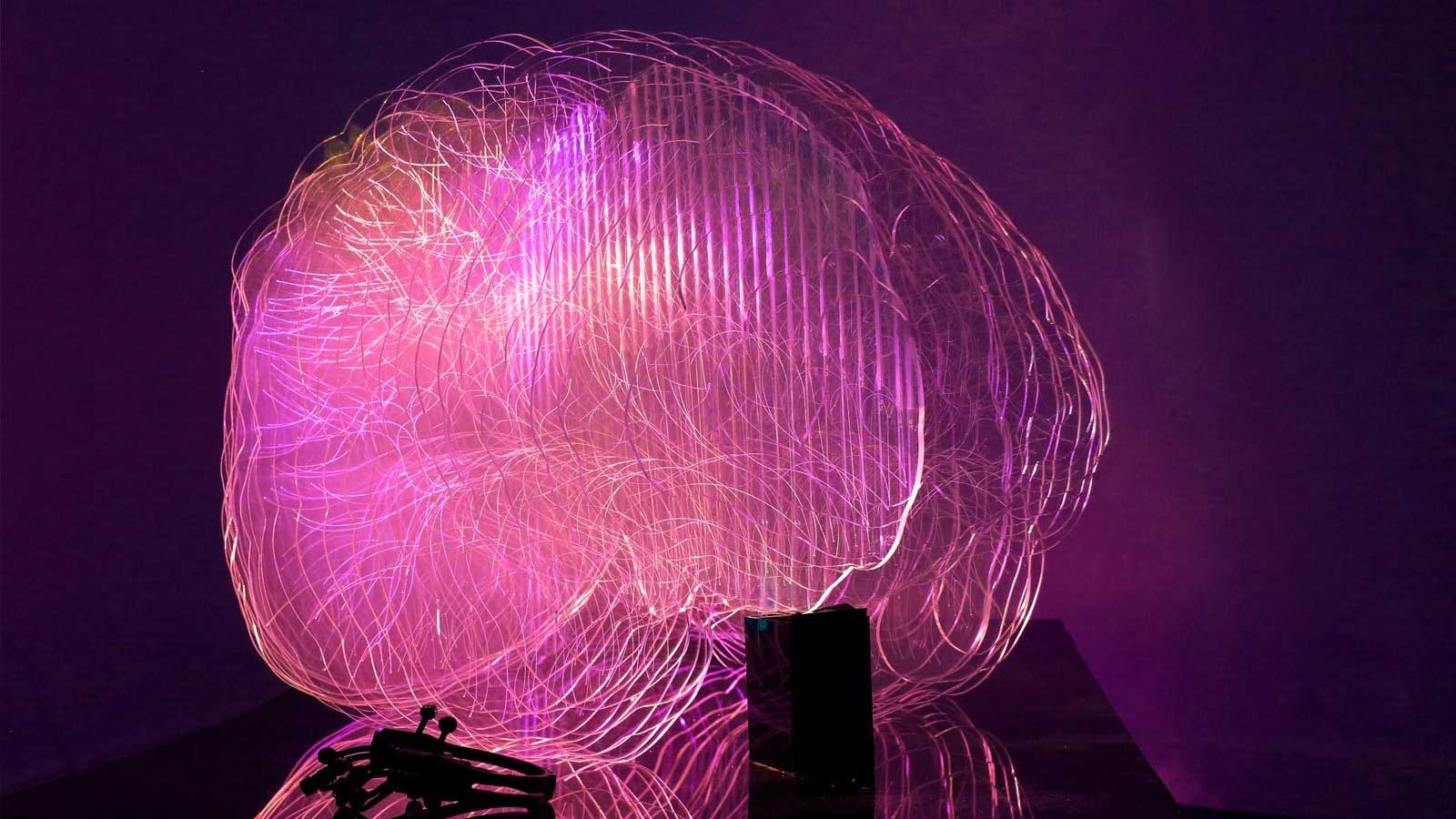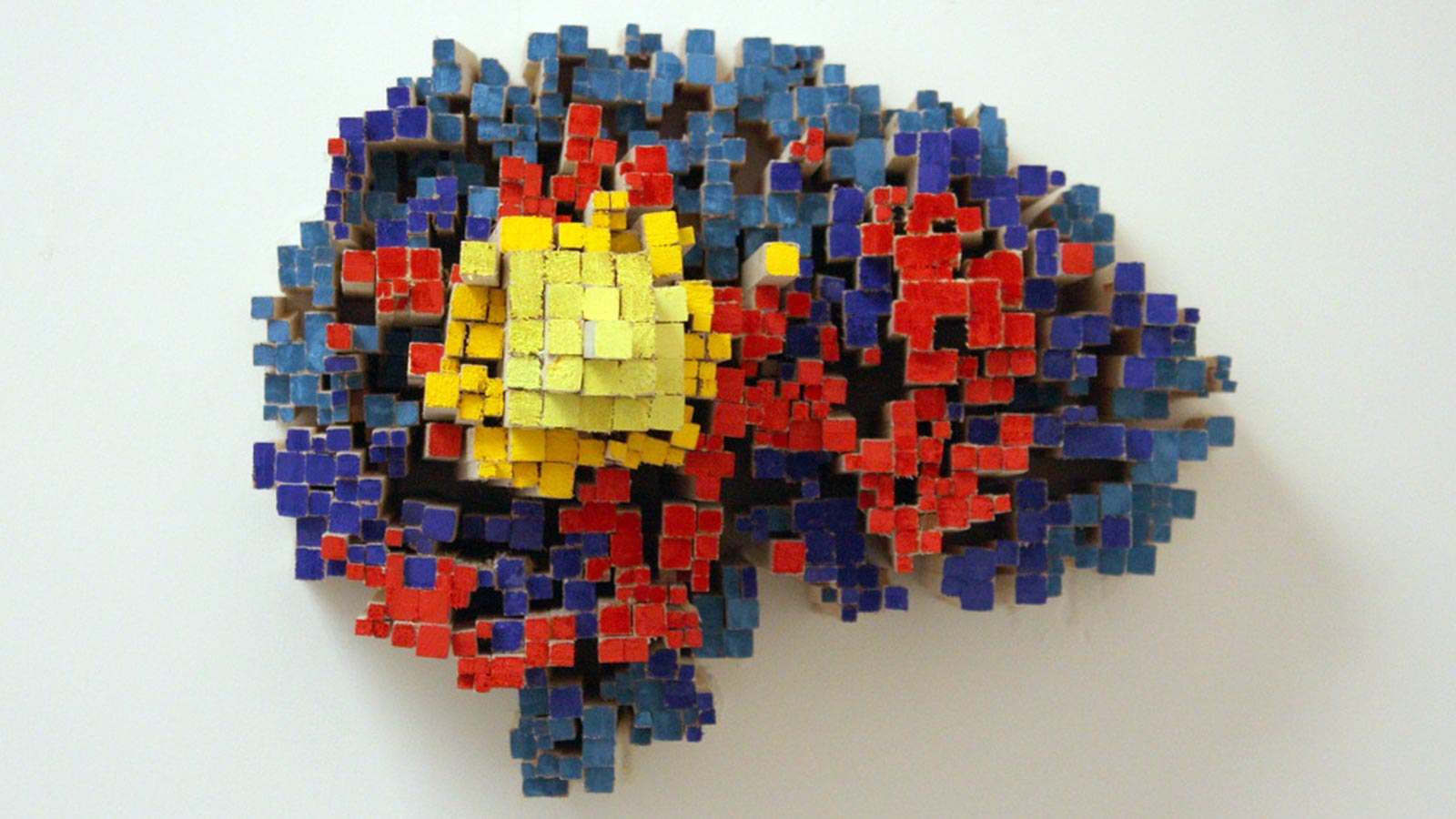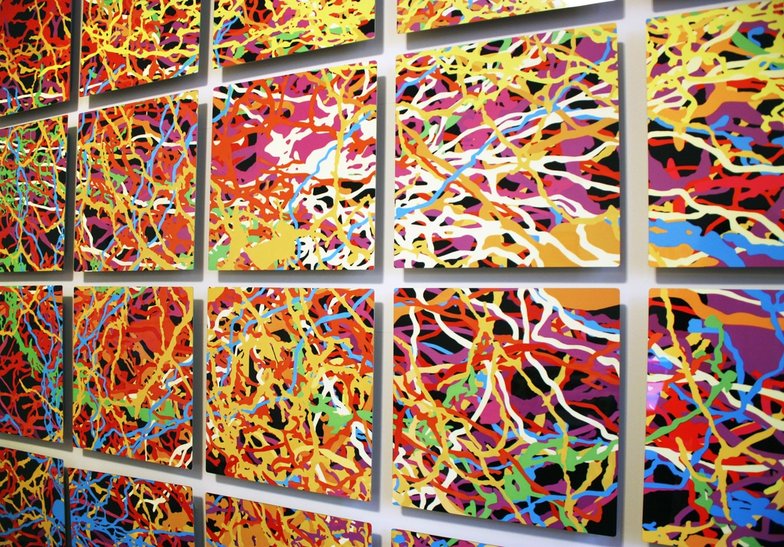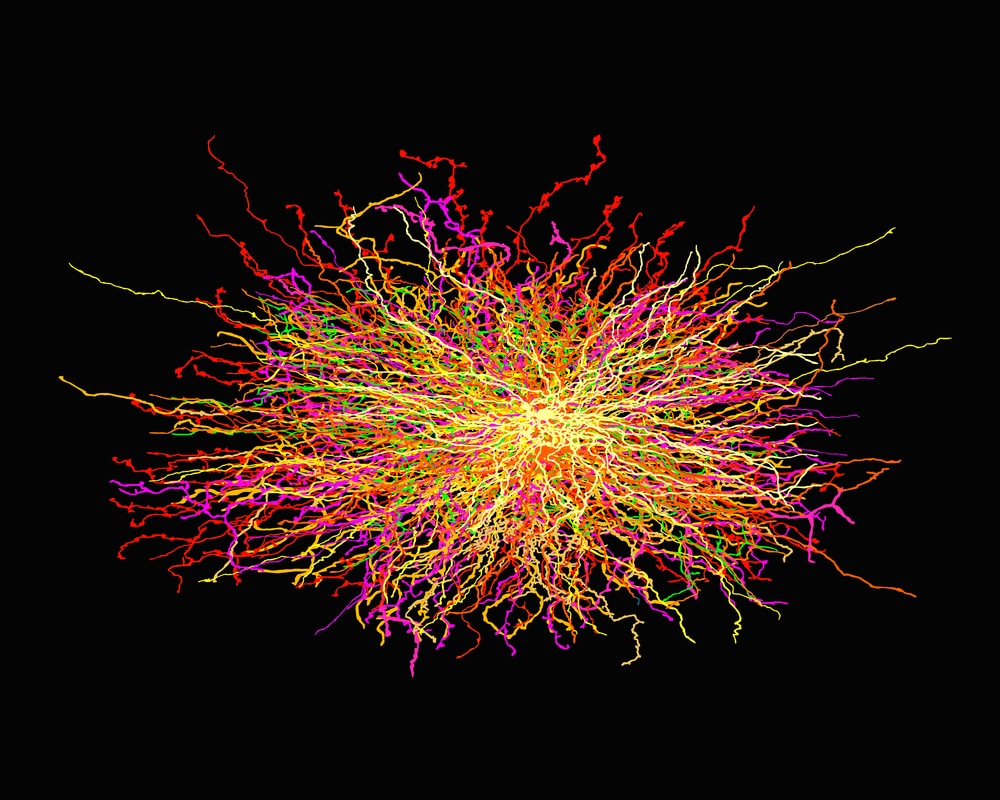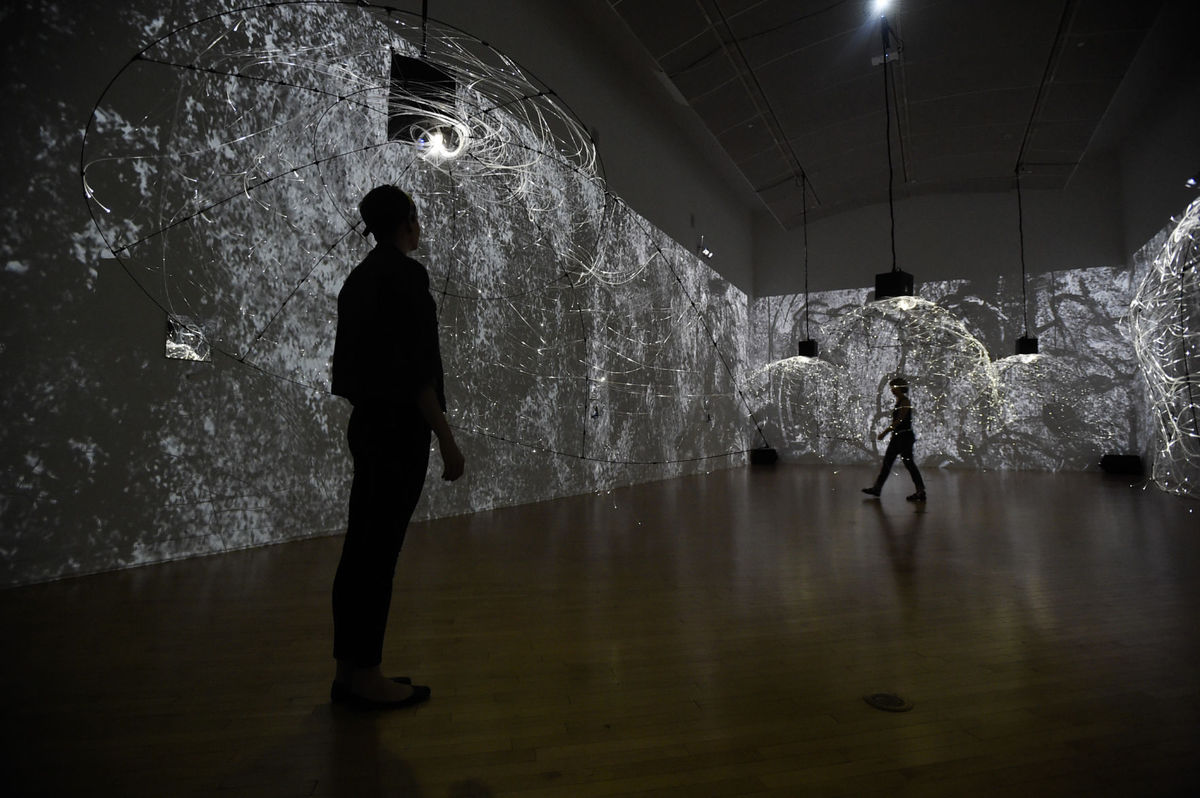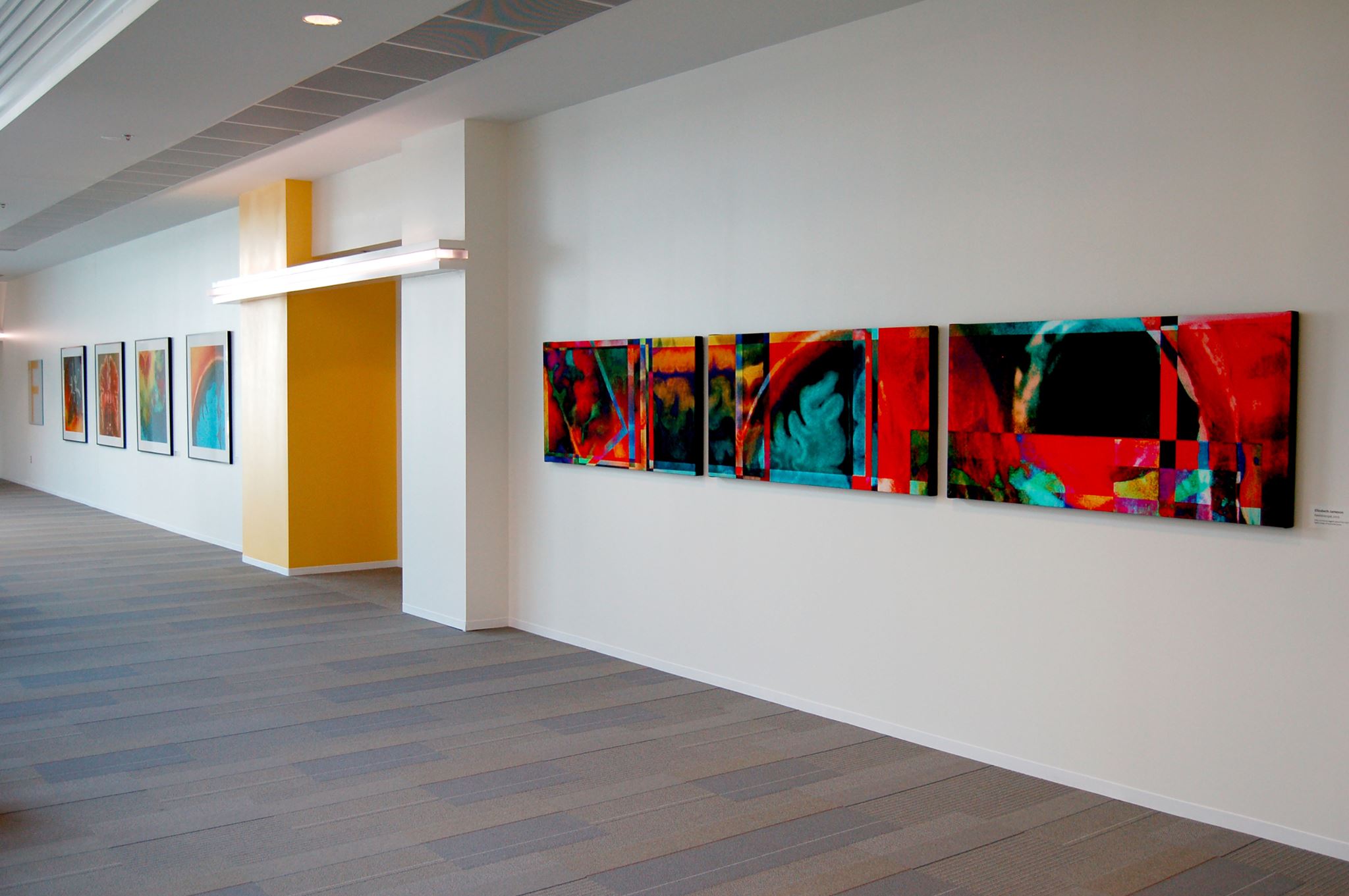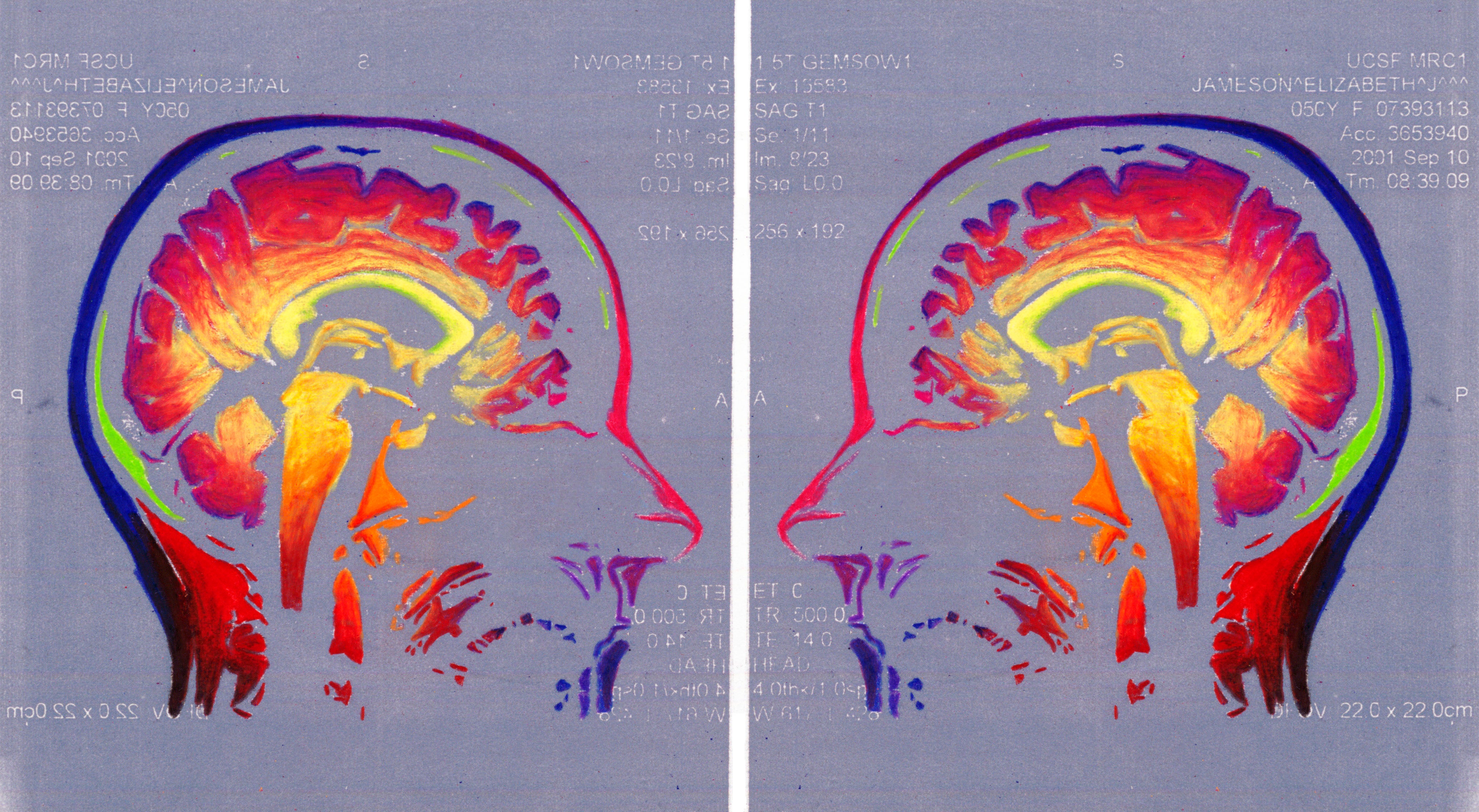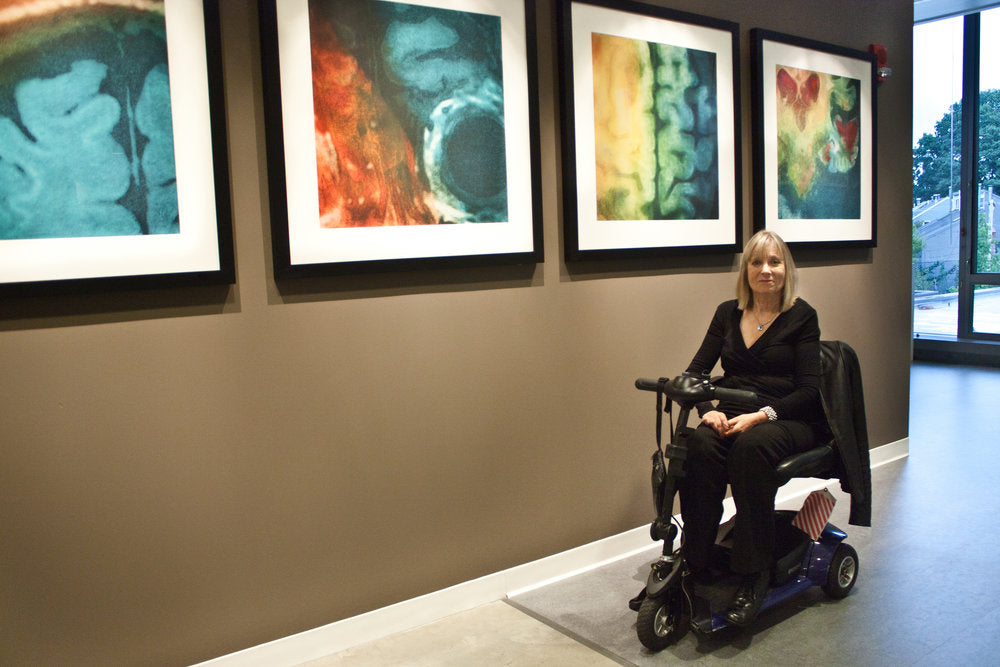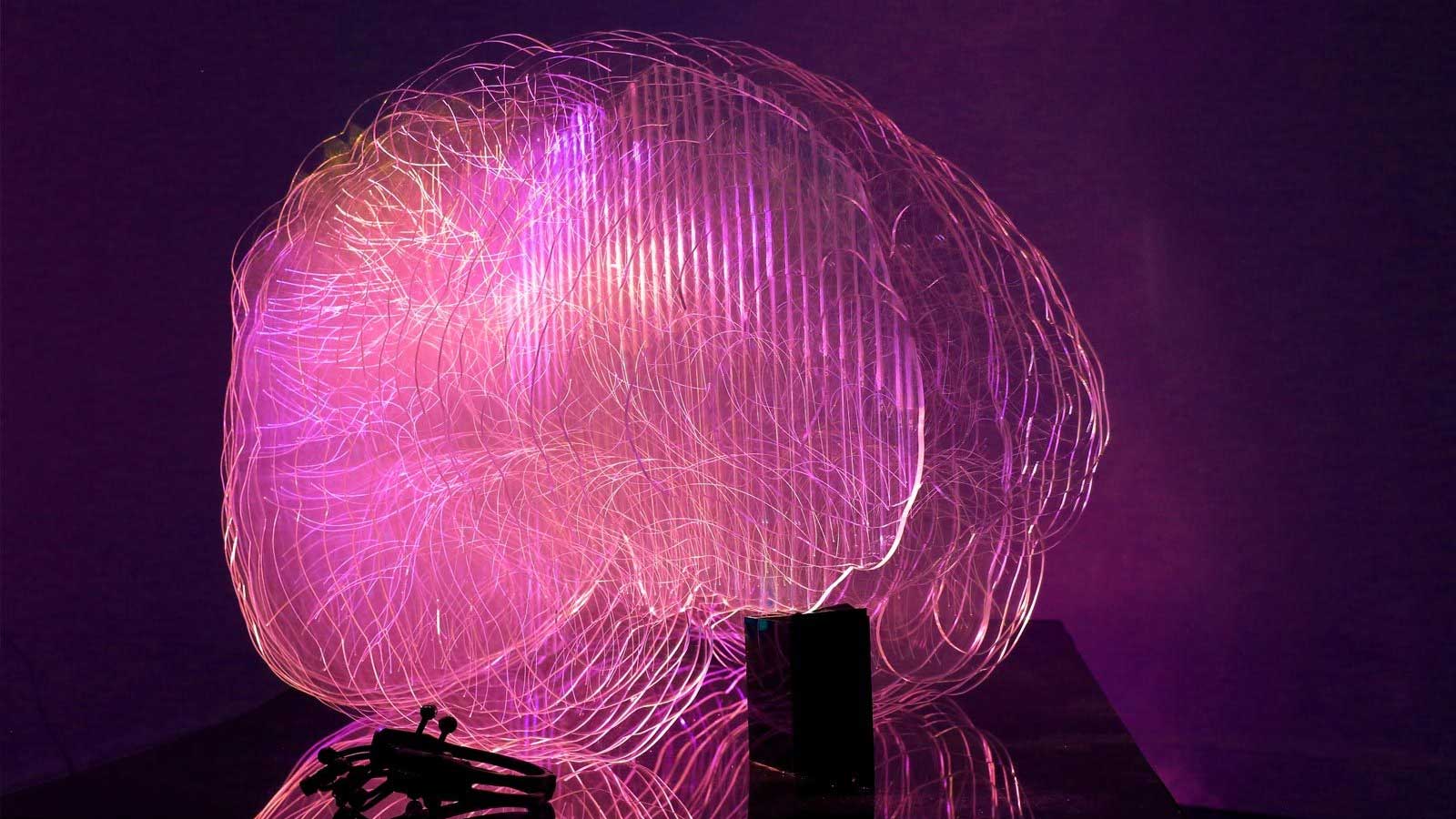
Let Gorgeous Neuroscience-Inspired Art Bring Some Joy to Your Day
Ready for your coffee break? We’ve rounded up some amazing #neuroart to give your brain a boost of dopamine to go with that caffeine.
You know the feeling — you have more work than hours in the day, a laundry pile that is defying the laws of physics, and exactly four hours of unscheduled time in your entire month. And then it happens: an invitation to a gallery opening arrives from someone you vaguely recall meeting when you were an undergrad, threatening to take up that last block of time. Before you toss it in the bin, consider what science has to say on the matter.
Writing for The National Endowment for the Arts in 2011, Brain Pickings’ Maria Popova broke it down, “A ... study by Professor Semir Zeki, chair of the neuroaesthetics department at University College London, placed subjects in a fMRI machine and observed their neurological response to a selection of classical, culturally acclaimed paintings. The results were striking: Brain scans revealed looking at art elicited as much joy as being head-over-heels in love.” And that’s not the only benefit. According to a study at the University of Westminster in 2006, a brief mid-day visit to an art gallery led to a reduction in cortisol levels in the study’s participants, who also self-reported lower levels of stress after the tour.
You don’t have to wait for a gallery opening to give your ventral striatum a high-five. We’ve curated a mid-day gallery visit for you and filled it with artists who have flipped the canvas inward and created incredible art with neuroscience as their muse:
Laura Jade
Interactive Brainlight - Brain Sculpture That Lights Up Your Thoughts
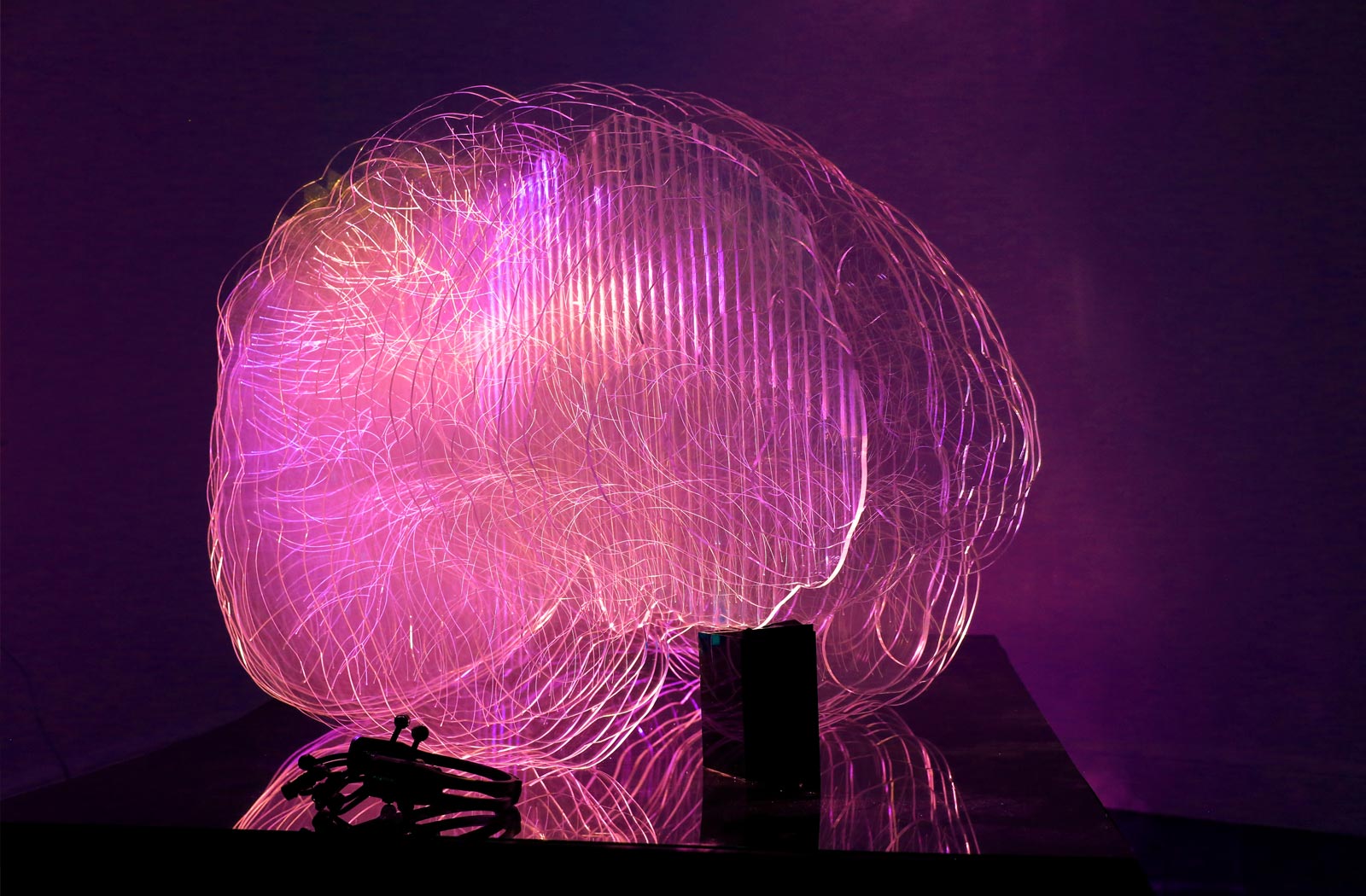
Image © Laura Jade
Based in Sydney, Laura Jade’s work combines art, biology, illumination design, neuroscience, and BCI technology. Together with neuroscientist Peter Simpson-Young and programmer Sam Gentle, she is the creator, artist, & designer of Brainlight (expect to see a GoFundMe campaign from me very shortly asking for help raising funds for my own mini-brainlight). You can check out more of her work here.
Julia Buntaine
Empire State of Mind. 2013. 1..5'x1'x1.5'. Shape of Empire State Building, colors from fMRI standards. Wood, paint. | Image © Julia Buntaine [see more]
For Pollock. 2017. 65" x 65". Neuron data from Eyewire, digital collage. Printed on aluminum.[see more]
Thoughts - 20" x 16". Neurons acquired from neuroimaging software developed by EyeWire. Printed on aluminum. [see more]
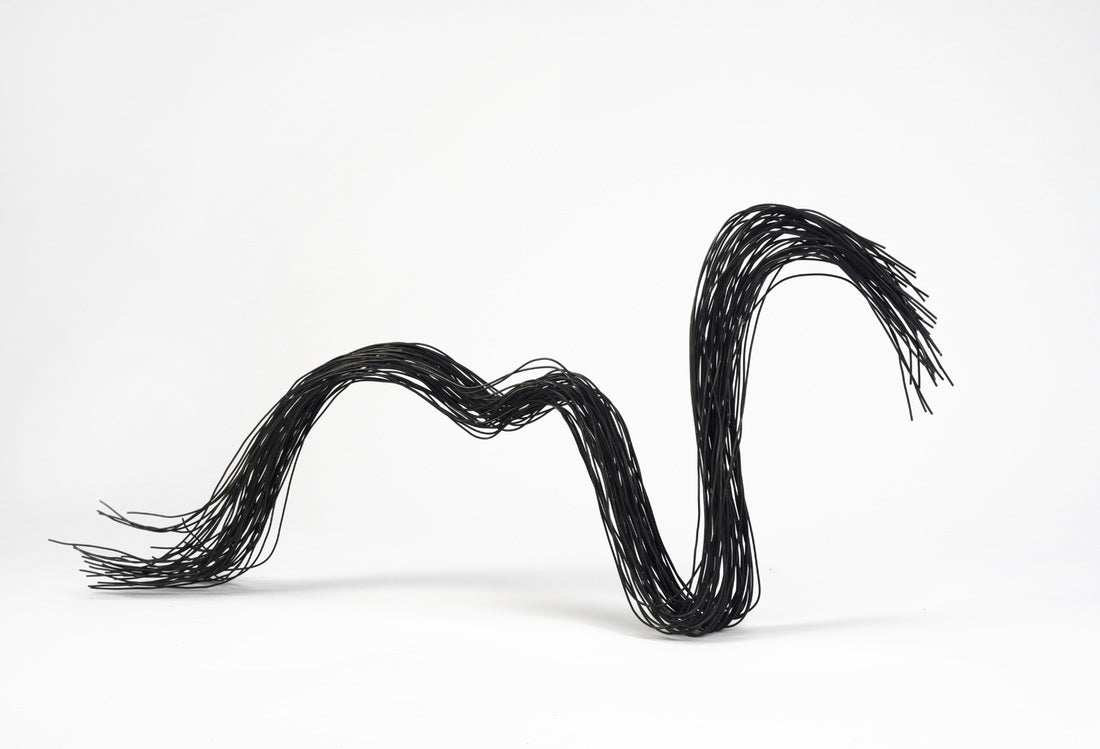
Delta Wave(s). 2'x5"x1'. Rebar Wire. | Image © Julia Buntaine
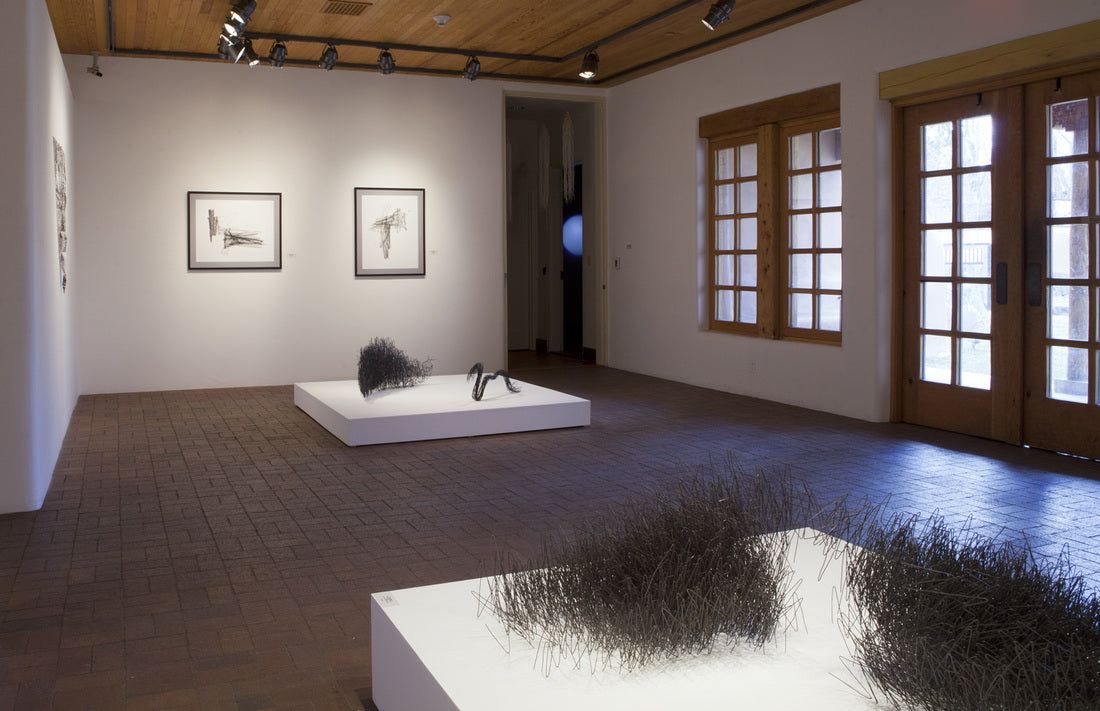
Courtesy of Peters Projects Gallery, Santa Fe, NM [see more]
Julia Buntaine is a visual artist based in New York City whose work, in her words, “addresses the beliefs, theories, and findings of the biological phenomenon of consciousness.” She is the director of SciArt Center, editor in chief of SciArt Magazine, and Innovator-in-Residence at Rutgers University. You can see more of her work on her website, in the permanent collection of Johns Hopkins University, and on exhibit at NYU Langone’s art gallery until March 31, 2018.
Greg A Dunn
Videos © Greg A Dunn
Greg Dunn is a neuroscientist and artist in Philadelphia, PA, creating pieces that intersect his ardor for neuroscience and Asian art. Crossing disciplines of painting, ink-blowing, and a reflective microetching technique that he and University of Pennsylvania physicist, Brian Edwards, collaborated to create, he brings the hidden artistry of neurons into focus. You can see more of his work at www.gregadunn.com, or on permanent exhibition at the Franklin Institute.
The Neurocave Collaborative
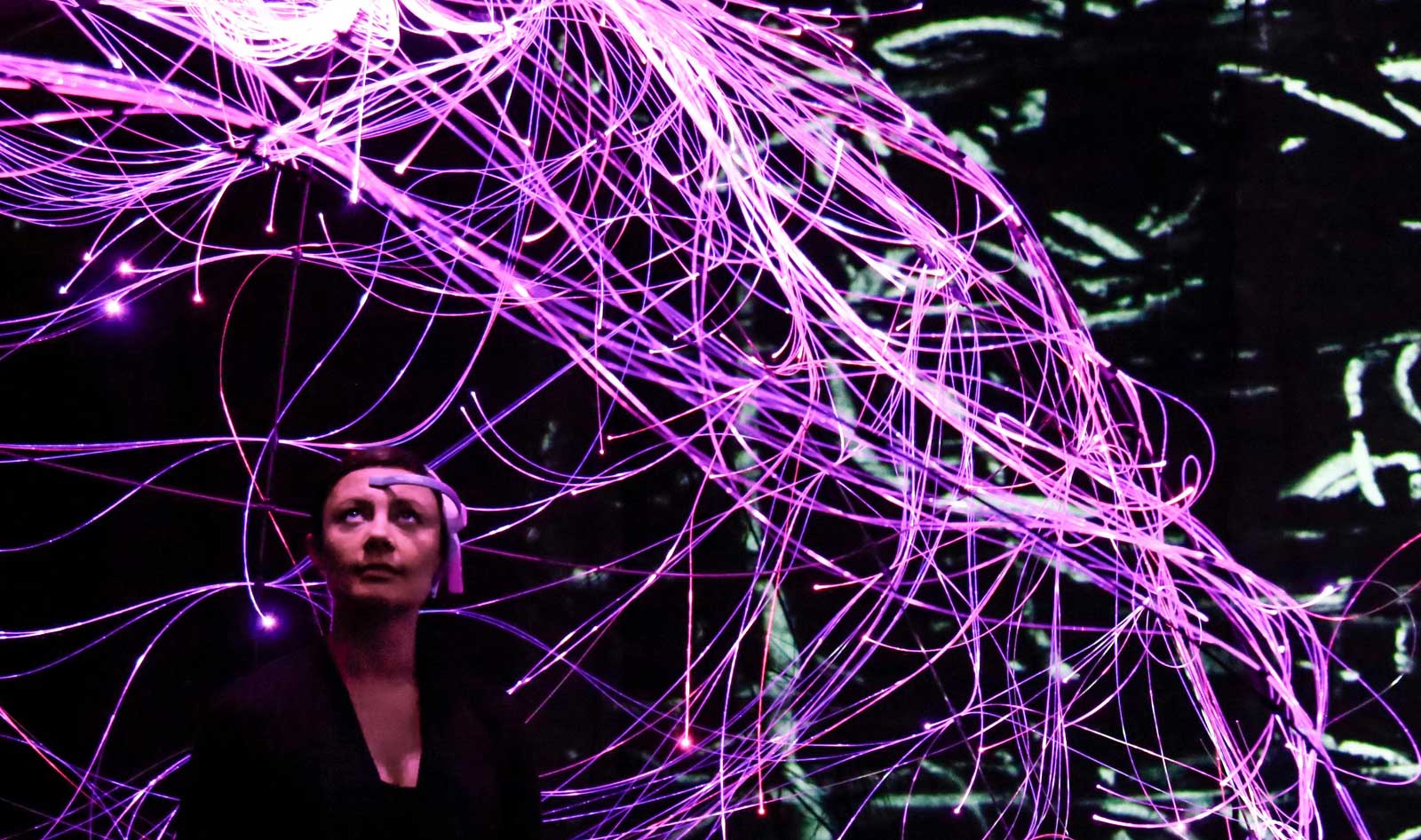
Image © The Neurocave Collaborative
Image © Helenair [see more]
Artist Sara Mast cites a talk on consciousness and neuroscience in cave art given by neuroscientist John Miller as the inspiration for the installation. Mast, Miller, and a team of eight others at Montana State University collaborated to create the interactive installation which responds to the brainwaves of viewers in the gallery to alter visual and auditory components of the exhibit. If you missed it in 2017, fear not: a second exhibition is planned for August 2019 in Bozeman, MT.
Laurie Frick
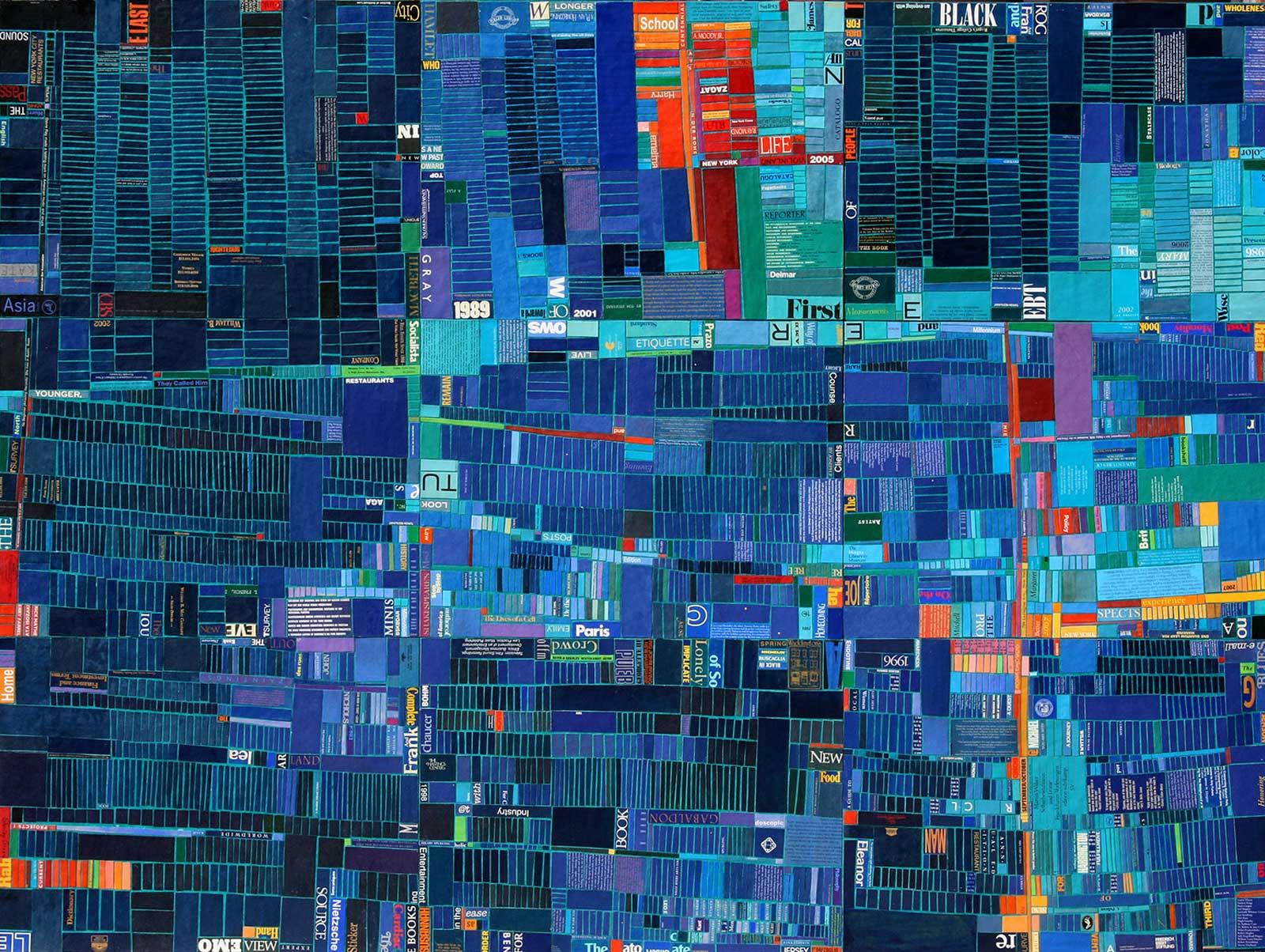
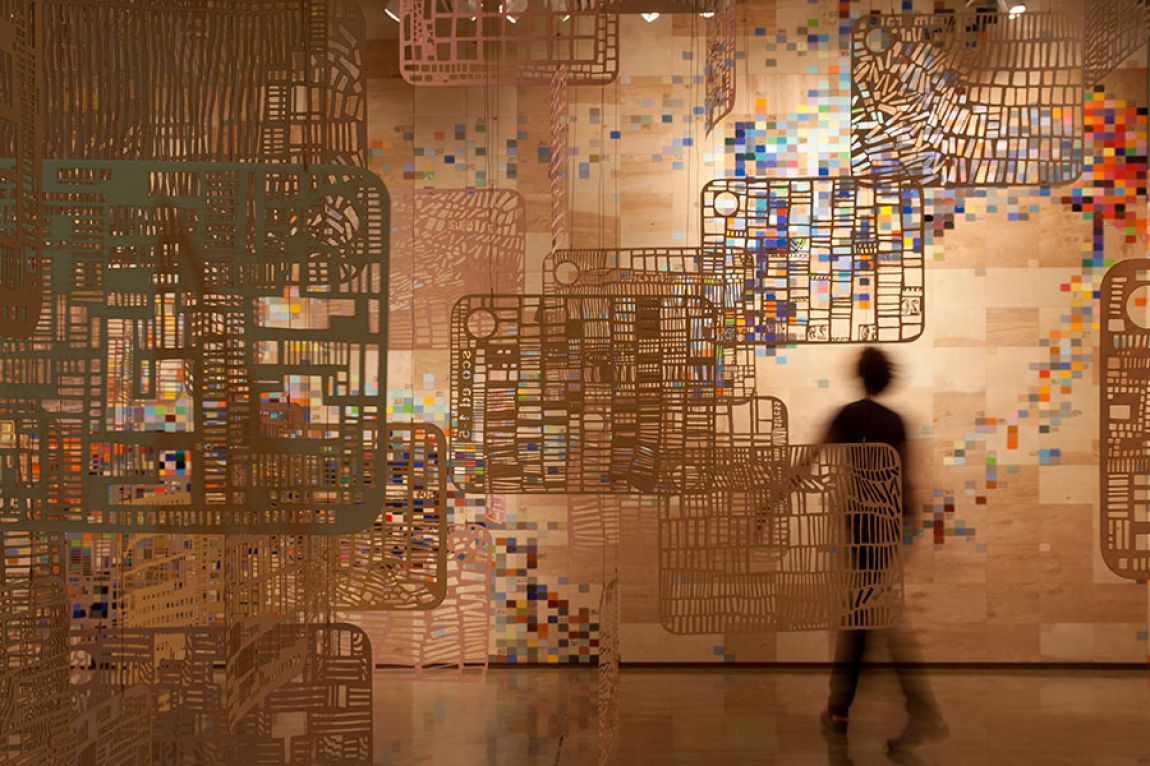
Images © Laurie Frick
Laurie Frick is a data artist who describes her work as “exploring the bumpy future of data gathered about you.” She draws from neuroscience to construct intricately hand-built works and installations to investigate the nature of pattern and the mind. You can explore the hand-built work and installations she creates on her website, and find links to past talks and read more about her work here.
Elizabeth Jameson

Images © Elizabeth Jameson
Elizabeth Jameson is an artist living in San Francisco, CA. After being diagnosed with MS, she began creating art inspired by her brain scans. Explore more of her work on her website and Twitter, and hear her story in her own words here.
Kindra Cric
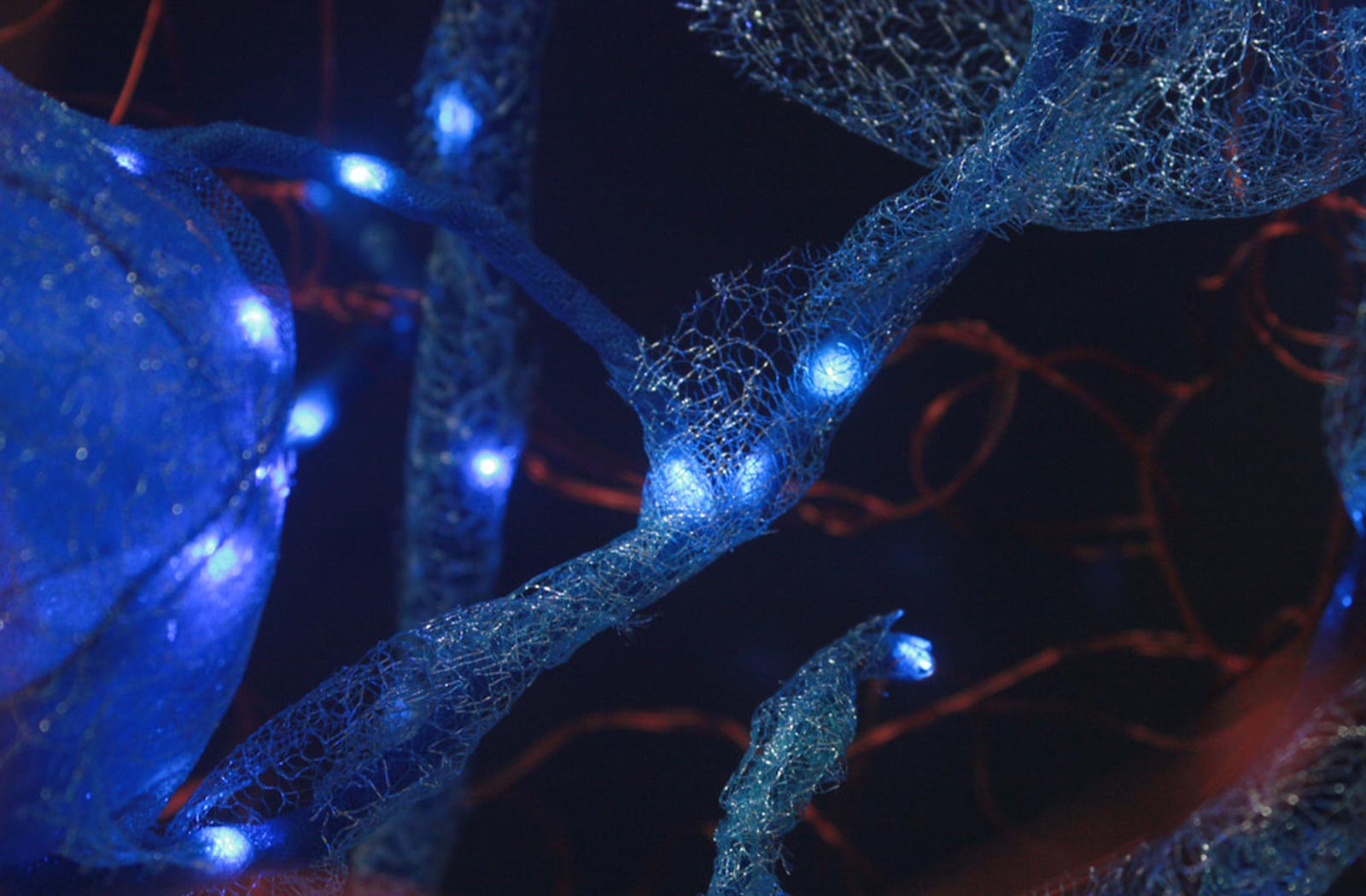
Image © Kindra Crick | Music by Katie Griesar | Neuron images taken by Dr. John Harkness from Dr. Sorg's lab at WSU, Vancouver
The Oregon based artist Kindra Crick marries artistic expression with scientific inquiry, echoing the marriage of her grandparents, the artist Odile Crick and scientist Francis Crick. Read more and see her work here.
Wow, Inc
Neuroscience Light Show - Shiseido Ginza Building
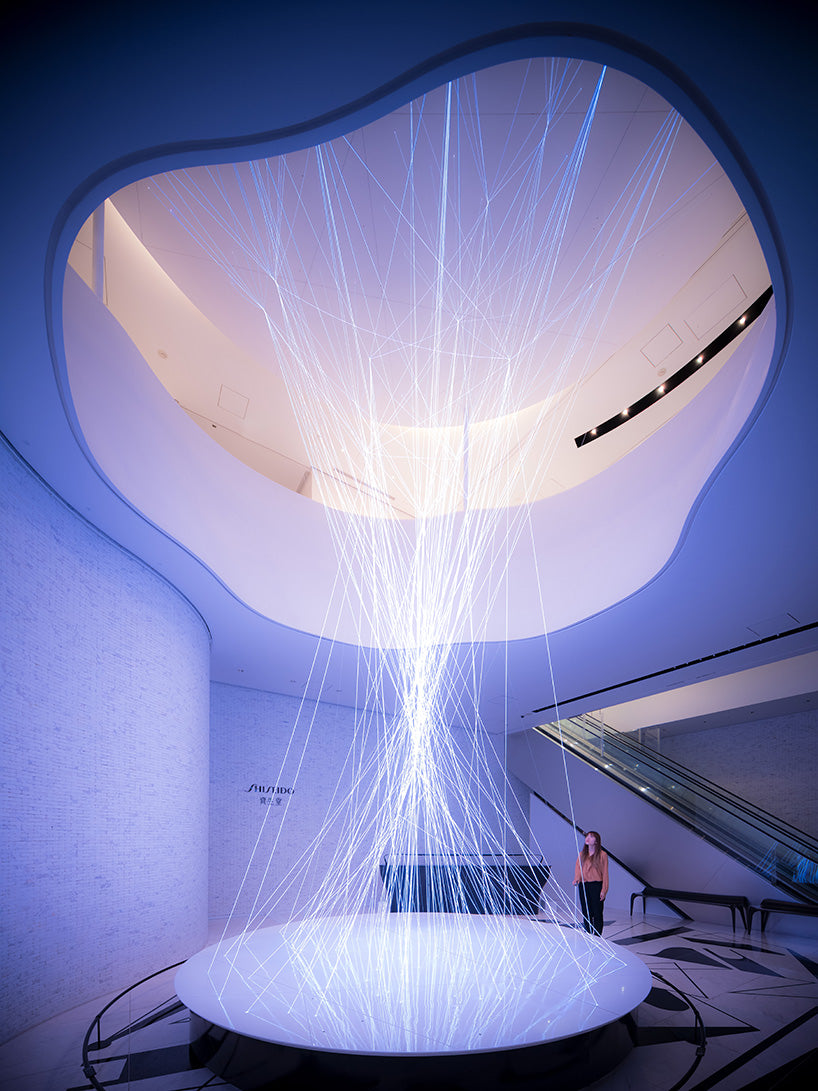
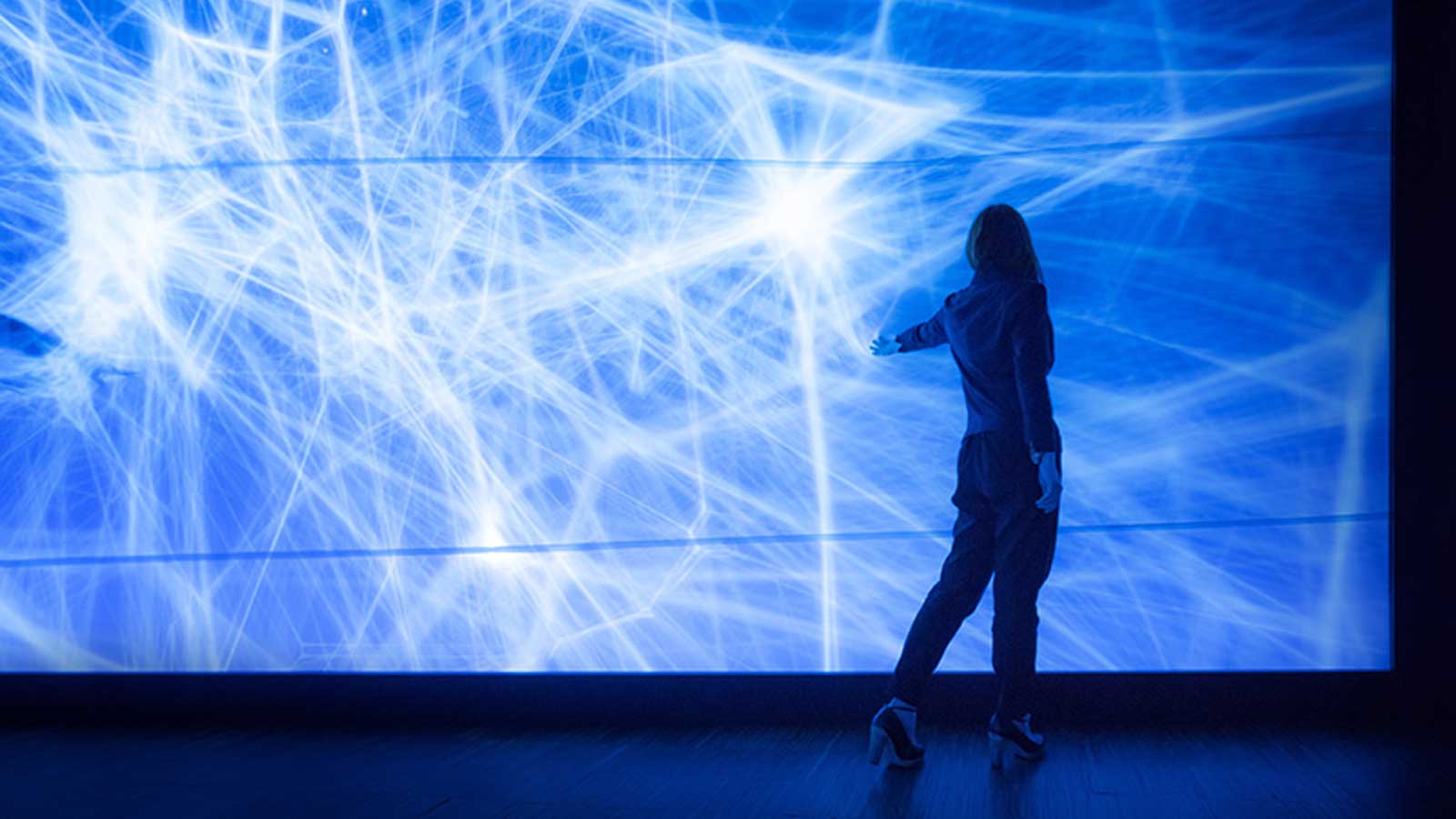
Images © Wow, Inc.
Wow Inc, led by Chief Wowmaker Charles Slatkin, is a creative digital design studio known for leveraging and combining emerging technologies to create “Storytelling Machines on Steroids.” Read about their barrier-breaking approach to storytelling here.
Ouchhh & Mehmet Ünal

Image © ouchhh.tv
There’s plenty more where that came from. Ouchhh is a new media agency whose awards are too many to list — check out their website for links to their other work and installations. You won’t want to miss AVA_V2 or iOTA.
Lia Cook
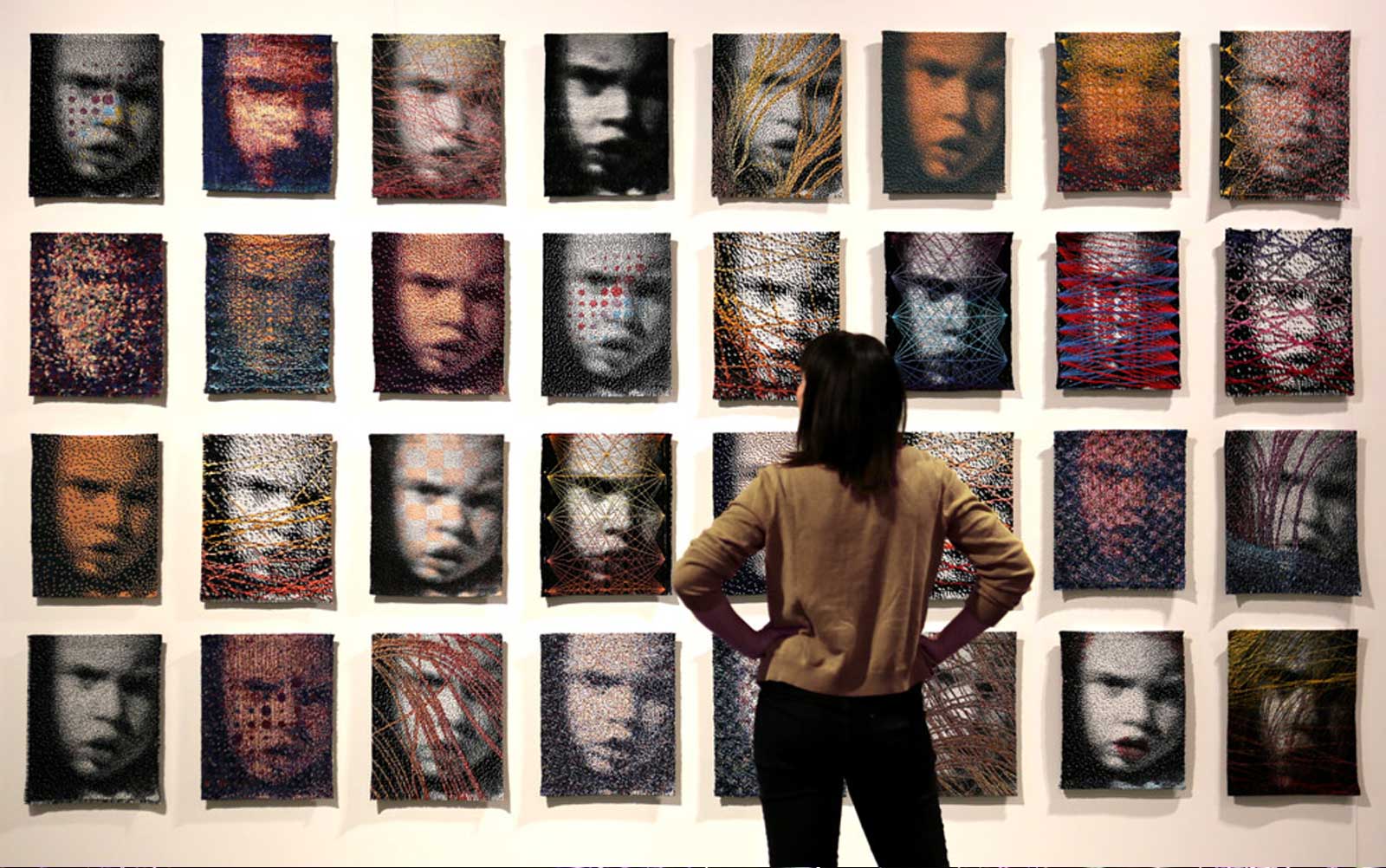 Image © Lia Cook
Image © Lia Cook
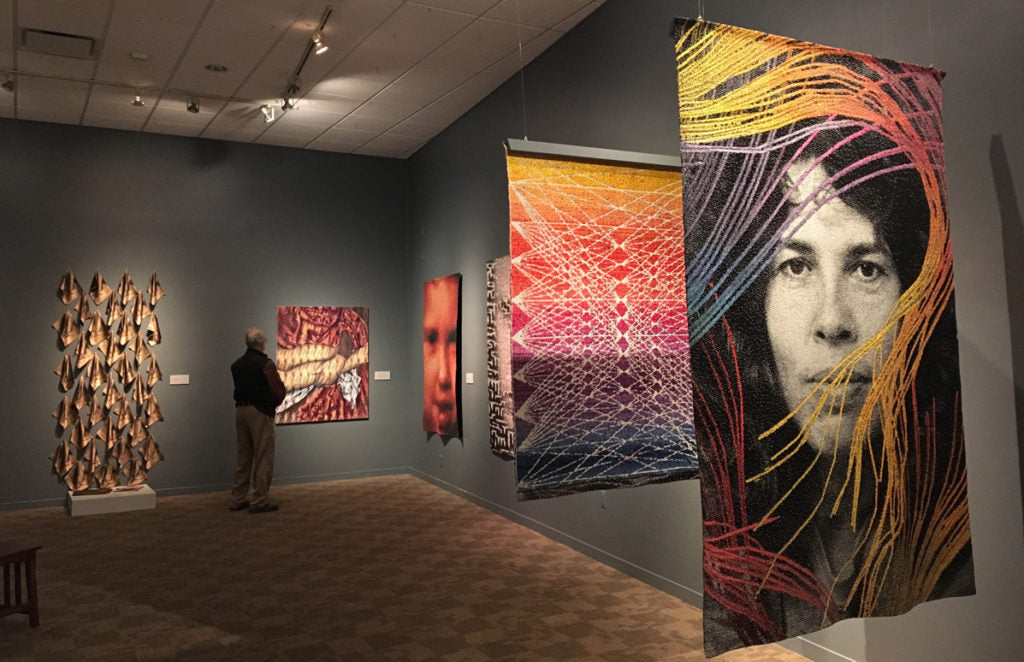
Cerebral Touch Art Exhibit at San Jose Museum of Quilts and Textiles [see more]

Lia Cook is an artist living and working in Berkeley, CA. Her mixed media approach “explores the sensuality of the woven image and the emotional connections to memories of touch and cloth. Working in collaboration with neuroscientists, I am investigating the nature of the emotional response to woven faces by mapping these responses in the brain. I draw on the laboratory experience both with process and tools to stimulate new work in reaction to these investigations.” Her accolades span decades, and you can view more of her work and find out about current and upcoming exhibitions here.
Holly Renee, Shenova Fashion

Image © Shenova Fashion
Looking for more science art?
Follow these science obsessed art lovers for when you need another pick me up.
The Beautiful Brain | Twitter | Facebook
Art the Science | Twitter | Facebook
SciArt Magazine | Twitter | Facebook
Art Science Nexus (Los Angeles Art Gallery)
Try as we might, we couldn’t fit all of our favorites into one post. Is your favorite #neuroart missing from the list? Let us know so we can include it in the next #sciart roundup!
Also in News and updates
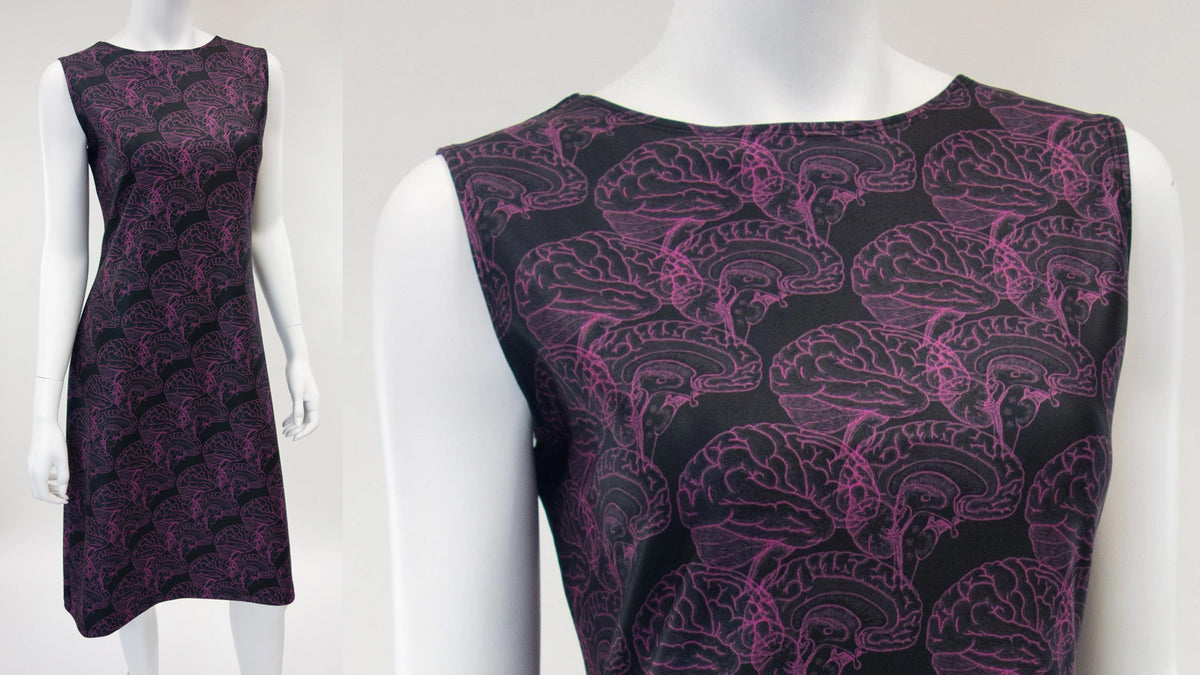
PhD Defense Attire: New Brain Anatomy Dress
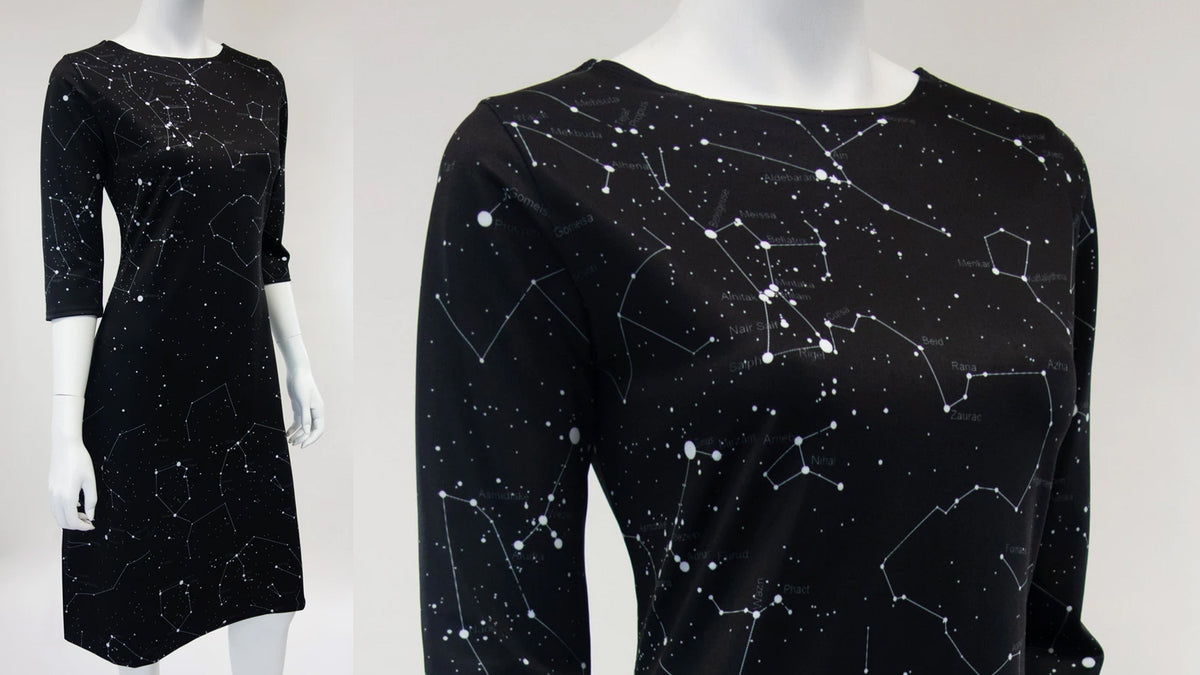
Constellation Dress for Astronomy Lovers
We've updated the design of the STEM Classic Constellation Dress!

